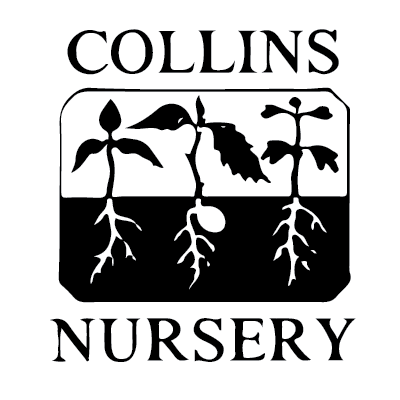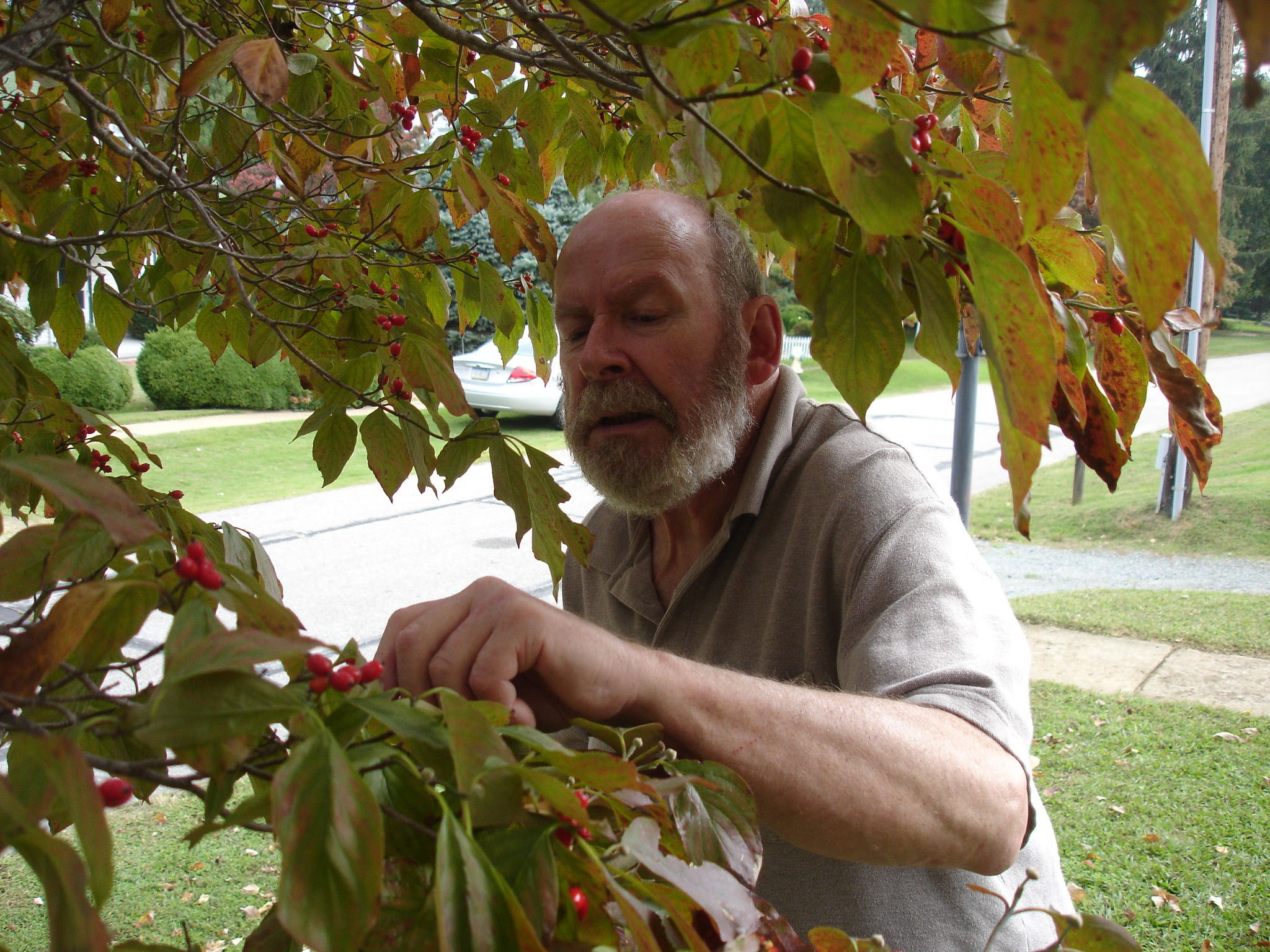 The stamp that John F. Collins, FASLA, placed on Temple University Ambler, the City of Philadelphia, and its surrounding suburbs isn’t difficult to discover.
The stamp that John F. Collins, FASLA, placed on Temple University Ambler, the City of Philadelphia, and its surrounding suburbs isn’t difficult to discover.
Experience the gardens and pathways at the Ambler Campus. Take a walk along Market Street East or watch the water rush by in Schuylkill River Park. Marvel at the sustainable designs students in the Tyler School of Art and Architecture Landscape Architecture, Horticulture, Community and Regional Planning and Community Development programs create every semester. You’ll see the creativity, dedication and determination of Collins — the founding Chairman of Temple’s four-year Landscape Architecture and Horticulture programs — everywhere you look.
What may not be as readily known was Collins’ lifelong passion for plants, said Kathy Salisbury, Director of the Ambler Arboretum of Temple University.
“I think what a lot of people didn’t know about John is that in addition to being a landscape architect and an inspiring mentor to countless students he was a horticulturist and an ardent nurseryman. Starting from the age of 15 he had his own native plant nursery where he was growing plants in his parent’s backyard,” she said. “That nursery moved around with him wherever he went. At some point there was a version of his nursery here at the Ambler Campus. Then he moved it to his home.”
When Collins became ill, Salisbury said, his nursery manager, Diane Ehrich, took over running the Collins Nursery.
“When John passed away in 2011, the nursery became Diane’s. It was a native plant nursery that sold plants in containers. A couple of years ago, Diane decided that she wanted to retire — it was a one-person operation and the nursery had grown exponentially,” she said. “We had a conversation about the fact that it might make sense for the nursery to come back to the Ambler Campus. When we thought about that of course we want to continue to do what the Collins Nursery has done, which is provide high-quality accessible native plants to the public, to educate about them and provide information, and to help guide people in decision-making for their gardens.”
MJ Kirkpatick, a Temple alumna who received her PhD in Psychology, dedicated supporter of Temple Ambler and a member of the Ambler Campus Board of Visitors, had a history with the Collins Nursery long before discussions began for the nursery to become part of the Ambler Arboretum.
“I think the Collins Nursery fits perfectly into the mission of the Ambler Arboretum and the Ambler Campus. Bringing the nursery to Temple is essentially a homecoming — it’s preserving John Collins’ legacy at the campus where he made such an impact in so many students’ lives,” she said. “There will be so many benefits to providing hands-on opportunities for students to learn about plant propagation and nursery management. For myself, I’m just excited that I’ll be able to visit the Collin Nursery when it is once again at Temple Ambler and purchase my native fall plants!”
According to Salisbury, the Collins Nursery at the Ambler Arboretum is on track for a soft introductory launch in spring 2024 with the intention of beginning plant sales in the fall.
“Primarily we will be growing native plants, and they will be coming from a variety of sources. Our Nursery Manager Sam Makler, TYL ’21 is well-versed in seed collection. We’ll be learning about the regulations around collecting seeds for wild propagation and learning about the plants that people are looking for,” she said. “We hope to offer familiar native plants, but also aim to expand the current available palette of native plants in the region to include some less well-known species that will add to the diversity and interest of the home landscape. We may also offer some non-native plants suitable for this region and its challenges as well as plants for Temple University students living in dorms and apartments.”
While Makler is the most recent addition to the Ambler Arboretum team, he’s no stranger to Temple University Ambler. He is a graduate of the Tyler School of Art and Architecture Landscape Architecture program.
“While I was completing my degree, I was doing traditional landscaping and from there I was able to do ecological restoration, growing plants for restoration while I was finishing up my degree. That journey then led me back to this amazing opportunity with the Collins Nursery at the Ambler Arboretum,” he said. “I’m very fortunate in that I’m able to work with growing plants — that cycle is always an enjoyable process from seed to full-grown plant, there’s always a lot of excitement. I’ll also able to use these plants as an educational opportunity, which is a very unique experience for Temple.”
While the Arboretum is continuing to work out the details and logistics, “we don’t anticipate it will be a nursery that is open Monday through Friday, 9 a.m. to 5 p.m.,” Salisbury said.
“We’ll have open days and specific days when people can come in to purchase plants,” she said.
Thinking about how the Collins Nursey would fit in with the Ambler Arboretum, “what was really important to us was that it could also be an academic support facility,” Salisbury said.
“The Landscape Architecture and Horticulture programs offer Nursery Management and Horticulture Business courses as well as Plant Propagation and Ecological Restoration, among others. With these and quite a few more we can see a tie into this nursery,” she said. “What we’re planning is that in addition to being a revenue-generating retail nursery open to the public for people to purchase plants, it will also function as a facility that supports academics at Temple. We can offer internships and independent study opportunities, student gardeners can work there, and our nursery manager can be a support for the faculty and, eventually, teach courses in the nursery. We also hope to support the various restoration courses — if they plan to actually plant plants in a restoration area, we can grow those plants for them.”
The new home for the Collins Nursery in the Ambler Arboretum will be right on Meetinghouse Road, “a half-acre deer fenced area that is about twice the size of the previous nursery,” Salisbury said.
“The Landscape Architecture Company ThinkGreen, LLC is run by two alumni of John Collins, Peter Scott Johnson and Thomas J. Johnston. They, along with John Collins’ son. John R. Collins who owns John R. Collins Design, have partnered together to donate the landscape architecture design plans and specifications to help Sam (Makler) work through the process of building it from the ground up,” she said. “An important part of the plan is adaptive reuse. We’re going to take an old shed that is currently near the Ambler Campus soccer fields and transform it to a nursery building while some batting cages no longer in use will be repurposed as our shade structures. The design they are giving us will work for what we can do now but is also a roadmap for the future as the business grows — we can constantly work to improve that space.”
Salisbury foresees the nursery as a draw for an entirely new group of people to discover the Ambler Arboretum and Ambler Campus.
“Individuals buying plants can actually go into the Arboretum display gardens to see how the plant they are interested in looks when it is larger or within a designed garden space in combination with other plants. We can offer different types of nursery-related tours and workshops just as Diane did,” she said. “It will help us fulfill our mission of modeling sustainability through growing native plants in a sustainable way. Ideally, aligning with our mission to support research as well, we will also be able to help the local nursery industry where we have some flexibility in experimentation — we might be able to try some things that other nurseries couldn’t and share our results with our colleagues.”

